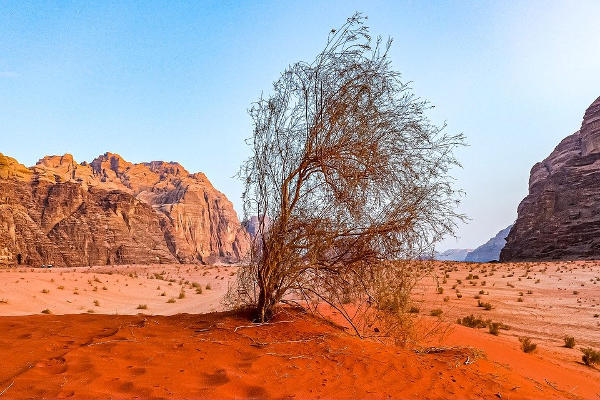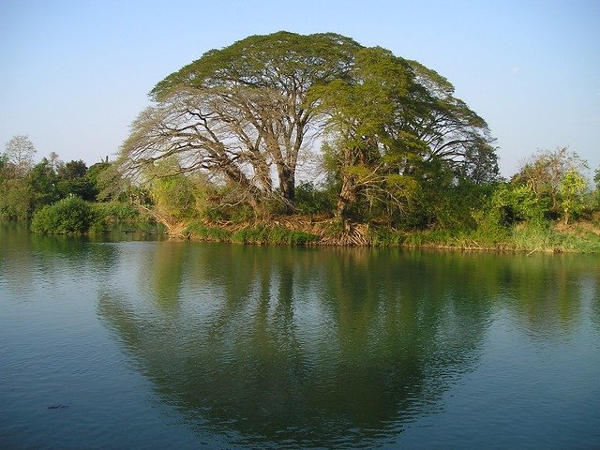Pepper Grinder Home
Recent Posts
Want to see more old postings? You can go to the post listing page to see all previous posts with descriptions or you can go the search page to look up posts by keyword or Bible reference.
Whom Do You Trust?
Trust is a big deal. This is never clearer than when trust is violated. When people find that a leader they voted for has used his power to enrich himself, they are angry. When church members discover that their pastor has been cheating on his wife with a young woman in the congregation, they are furious. When a wife is abandoned by the man with whom she had planned to spend the rest of her life, she is devastated. I am not for a second saying that any of these reactions are unjustified or that if we were “spiritual” enough we wouldn’t be hurt by human betrayal. Jesus was the Son of God, and knew, I believe, from the moment he chose Judas to be his disciple, that Judas would betray him to his death. And yet, I still think his betrayal hurt and saddened Jesus.
What I am saying is that trust matters a great deal. I think we are “wired” to trust. I’m sure there are people, often ones who have been hurt deeply, who do not seem to trust anyone. But I am sure there is someone or something they DO trust. It might be science, it might be a dog, it might be nature, but there is something. I don’t think we can live without trust.
That’s why I want to look at Jeremiah 17:5-8 today. Here is my translation of the passage:
This is what Yahweh says: “Cursed is the man who trusts in people, and gets his strength from flesh and blood, and turns away from Yahweh. He will be like a bush in the desert. When good things happen, he won’t see it. He will live in a stony desert, a salt waste, where no one else lives.
But blessed is the man who trusts in Yahweh, who has placed his confidence in him. He will be like a tree planted near water, which sends out its roots to a stream. It isn’t afraid when the weather gets hot; its leaves are green. It doesn’t worry in a year of drought, and it never stops bearing fruit.
 This passage comes after a section where God is talking about the ways he will punish the Israelites for their sins and stubborn refusal to turn back to God. He concludes this section by saying (Jeremiah 17:3-4, NIV):
This passage comes after a section where God is talking about the ways he will punish the Israelites for their sins and stubborn refusal to turn back to God. He concludes this section by saying (Jeremiah 17:3-4, NIV):
My mountain in the land and your wealth and all your treasures I will give away as plunder, together with your high places, because of sin throughout your country. Through your own fault you will lose the inheritance I gave you. I will enslave you to your enemies in a land you do not know, for you have kindled my anger, and it will burn forever."
To me, it seems the passage we’re looking at is getting down to the root of the problem. Why did the Israelites worship other gods and do many things which he had explicitly told them not to do? Why did they do these things even though God had clearly and plainly told them what would happen if they did them? Why did the people of Judah continue in their sins even after they saw the exact judgment predicted by God visited on their Israelite neighbors to the north? The problem was one of trust. They had placed their trust somewhere other than in Yahweh, the Lord.
The way this passage is split between the curses of disobedience and the blessings of obedience would have been familiar to the Israelites. It was not uncommon for God to lay things out like this. The most obvious example of it might be in Deuteronomy chapters 27 and 28, where God commanded half the tribes of Israel stand on one mountain and pronounce the blessings of obedience and the other half to stand on another mountain and proclaim the curses of disobedience. In the same way the chapters in Deuteronomy left no room for doubt about which path was better to take, so in Jeremiah 17 the choice is stark. The curses are really bad and the blessings are really good.
For example, the bush in the desert to which the cursed people are likened is probably a Tamarisk, which one of my commentaries (The Tyndale Old Testament Commentary, Jeremiah and Lamentations, by R.K.Harrison) describes as “a dwarf juniper of a particularly stark and naked appearance which has no prospect of improvement, since its stunted roots do not penetrate to the water-levels beneath the surface.” The phrase I’ve translated as “a stony desert” refers to something like a lava field. The salt waste would conjure up images of the area around the aptly-named Dead Sea. All of the imagery used in the curse would be very familiar to Middle-Eastern people who were never far away from places with desert or semi-desert conditions.
In contrast, they would also have been familiar with plants which, by having roots deep enough to reach perpetual water sources, could flourish even when conditions were very dry.
One of the things which jumped out at me when I started to study this passage was the way the characteristics of the cursed man all hang together. God lumps together trusting in people, getting strength from flesh and blood, and turning away from Yahweh. It is as if all are equally bad. In truth, I think all part of the same wrong choice. I believe God is saying that if you trust in people and rely on them for your strength, you HAVE turned away from the Lord!
So does this mean that to be blessed followers of God we have to be paranoid people who distrust everyone? What does trust mean? The word I’ve translated as "trust" is used many times in the Old Testament. To trust in someone or something carried the sense of depending upon it for your safety.
People care about safety in modern societies where there are relatively few dangers. However, I think that for many of us, it is hard to appreciate how much people in the Old Testament world valued safety. Not only were there hostile nations nearby, there were also raiding bands of outlaws. To top it off, Israel was in an area known as the Fertile Crescent, which often served as a kind of highway between Egypt to the south and powerful nations to the north such as Assyria and Babylon. It was not uncommon for large armies to be moving through the area and trying to extend their provisions with whatever they could find. Is it any wonder that cities with strong walls and gates were so valued in that time? People were in danger from attack, from disease, and from starvation in a way that is hard for us in affluent nations to understand.
In this environment, whom or what you trusted was crucially important. If you lived in an area that was a battleground between large nations, there was tremendous pressure to choose to side with one player or the other. If you made the right choice, things would go well. If you made the wrong choice, you might very well be faced with a vindictive victor. Often people tried to hedge their bets, but the word used here is not used for people who do that. It is used for people who make someone or something their primary or only source of safety. They have put all their eggs in one basket.
This is why those who trusted in people were seen as turning away from the Lord. They have made their primary source of safety something other than the God of the Universe.
Listen to what John 2:24-25 says about Jesus’ attitude toward people:
But Jesus would not entrust himself to them, for he knew all men. He did not need man's testimony about man, for he knew what was in a man. (NIV)
 Does that mean that Jesus went off into the desert and lived the life of a hermit? No, he had LOTS of interaction with people and developed a very close relationship with his disciples. He trusted them, and one of them stole from him and then betrayed him to the people who put him to death. But did he blindly trust them? Did he rely on them for his strength and safety? He certainly did not. As the NIV puts it in the above passage, he did not entrust himself to them. He saved that kind of trust for his heavenly father alone.
Does that mean that Jesus went off into the desert and lived the life of a hermit? No, he had LOTS of interaction with people and developed a very close relationship with his disciples. He trusted them, and one of them stole from him and then betrayed him to the people who put him to death. But did he blindly trust them? Did he rely on them for his strength and safety? He certainly did not. As the NIV puts it in the above passage, he did not entrust himself to them. He saved that kind of trust for his heavenly father alone.
I think the message of Jeremiah 17 to us is that we need to have that same type of attitude. We shouldn’t regard all people with an attitude of distrust and keep them at a distance, but we should see people for what they truly are—imperfect beings who will sometimes let us down. We can and should let ourselves get close to people. But we should never fall into the trap of placing our primary trust in any person or group of people.
There is only one slot in our lives for someone or something we trust completely. If we don’t put God in that slot, we will have put something else there, and we will have turned away from God.
I once astonished my mother by telling her that “God helps those who help themselves” is not in the Bible. It’s a saying that appeals to our desire to put our ultimate trust somewhere besides in the God of the Universe. We will trust in ourselves and help ourselves, and then God will step in and give us a hand, too. But that isn’t how God operates. When we throw ourselves at his mercy, placing our complete trust in him—giving him the power to hurt and devastate us—good things will happen.
I don’t think this means we can never take any actions to help ourselves, but that we will always have more trust in what God can do than what we can do. We will first turn to God and secondly think about what we can do. We will remember that our own actions or those of others may very well not help and could even make things worse.
If we live like this, will we get hurt sometimes? Yes. But we will be like a plant with green leaves and fruit. Even if all the ground around us is dead, we will be tapped into the source of living water that never fails.
- Pepper
Posted 2021-09-07
*Image Credits: Bush in the desert taken by Adri Marie, tree by the water taken by Simon.
What is the Pepper Grinder, anyway?
The Pepper Grinder is a blog written with the assumption that the Bible is true, and everything else is up for grabs. I try to strip away cultural assumptions, to see what the Bible truly says.
Comments
Want to express your opinion? Please feel free to make a new comment or reply to another comment using the buttons at the end of the post. To see all comments or to make a general comment (not related to a particular post) you can go to the comments page.
Keeping up with the Pepper Grinder
Tired of checking here only to find out AGAIN that I haven't posted anything new? There are now 2 ways to keep up with the Pepper Grinder. You can sign up for a good old-fashioned email notification and I'll drop you a line whenever I post something new. Or, if you like things with cool techie acronymns, you can subscribe to an RSS feed. Whichever way you choose, you can do it through the follow page.
How Do You Do It?
To find out about many of the steps I use when studying the Bible for a blog piece, check out How I Study. The steps I outline here assume no special knowledge or training.

